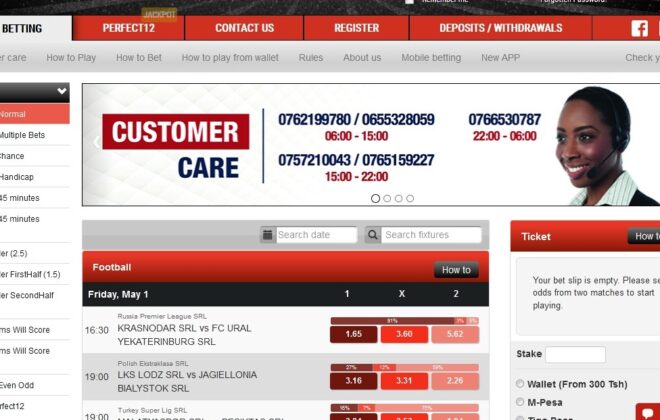Bookmaking for beginner
Bookmaking refers to the practice of taking bets on the outcome of a sporting event or other form of competition. If you’re interested in becoming a bookmaker, here are some tips for beginners:
- Understand the basics: Before you start taking bets, it’s important to understand the basics of bookmaking, such as how to set odds and how to calculate payouts.
- Set up your operation: You’ll need to decide whether to operate your bookmaking business online or in-person, and you’ll need to set up a system for accepting bets and paying out winnings.
- Know the market: Understanding the sports or other competitions you’ll be taking bets on is essential. You should know the rules, the key players, and the factors that can influence the outcome of the event.
- Set odds: Once you’ve analyzed the market, you’ll need to set odds for each bet. This involves assessing the likelihood of each outcome and assigning a probability to each.
- Manage risk: Bookmaking involves managing risk, as you’ll be exposed to potential losses if too many bets are placed on one outcome. You’ll need to keep a close eye on the odds and adjust them as needed to maintain a balanced book.
- Stay legal: Bookmaking is illegal in some countries and states, so it’s important to understand the laws and regulations that apply to your operation. In Tanzania, betting is legal and regulated, and bookmakers must obtain a license from the Gaming Board of Tanzania.
- Promote responsible gambling: As a bookmaker, you have a responsibility to promote responsible gambling. This includes setting betting limits and offering resources for those who may have a gambling problem.
Starting a bookmaking business can be challenging, but with careful planning and a thorough understanding of the market, it can also be rewarding. Remember to always gamble responsibly and within your means.
Understand the basics:
Understanding the basics of bookmaking is essential for beginners. Here are some key concepts to keep in mind:
- Odds: Odds represent the likelihood of a particular outcome in a sporting event or other competition. They are expressed as a ratio, such as 2:1 or 5:1. The first number represents the potential winnings, while the second number represents the amount of the bet.
- Point Spread: In some sports, such as American football or basketball, a point spread is used to even out the betting between two teams. The point spread is the number of points that one team is expected to win by. Bettors can bet on either team to cover the spread.
- Money Line: The money line is another way to bet on a team to win a sporting event. Instead of using a point spread, the odds are simply set for each team to win the game outright.
- Juice: Also known as vigorish or vig, juice is the fee charged by bookmakers for accepting bets. The juice is typically a small percentage of the total amount wagered.
- Payout: The payout is the amount of money a bettor will receive if their bet is successful. It is calculated by multiplying the amount of the bet by the odds.
- Book: A book refers to the list of all bets offered by a bookmaker. The goal is to balance the book, or take in an equal amount of bets on each outcome, to minimize the bookmaker’s risk.
By understanding these basic concepts, beginners can start to develop a foundation for bookmaking. However, it’s important to note that bookmaking can be complex and involves many other factors, such as market analysis and risk management.

Set up your operation:
Setting up your bookmaking operation can be a challenging process, but here are some tips for beginners to consider:
- Decide on the location: You’ll need to decide whether you want to operate your bookmaking business online or in-person. If you choose to operate in-person, you’ll http://ecgma.co.za need to find a physical location to set up your business, such as a storefront or office.
- Obtain necessary licenses and permits: In Tanzania, bookmaking is legal and regulated, and bookmakers are required to obtain a license from the Gaming Board of Tanzania. You’ll need to submit an application, pay the necessary fees, and provide information about your business and its owners.
- Develop a system for accepting bets and paying out winnings: You’ll need to develop a system for accepting bets and paying out winnings. This may involve setting up a website, phone line, or in-person betting counter. You’ll also need to establish payment methods and procedures for handling payouts.
- Set up a customer database: You’ll need to keep track of your customers and their betting activity. This can be done through a customer database, which should include information such as their name, contact information, and betting history.
- Establish security measures: Security is an important consideration when setting up a bookmaking operation. You’ll need to establish measures to protect your business from fraud and theft, such as using secure payment methods and storing customer data securely.
- Hire staff: Depending on the size of your operation, you may need to hire staff to help you manage your bookmaking business. This may include customer service representatives, odds makers, and risk analysts.
Starting a bookmaking business can be a complex process, but with careful planning and attention to detail, it can be a rewarding venture. Remember to always follow the laws and regulations that apply to your operation, and promote responsible gambling practices.
Know the market:
Knowing the market is crucial for success in bookmaking. Here are some tips for beginners to consider:
- Research the competition: Before launching your bookmaking operation, it’s important to research the competition. Look at what other bookmakers are offering, their odds and prices, and their marketing strategies. This can help you identify areas where you can differentiate your business and stand out in the market.
- Identify your target audience: You’ll need to identify your target audience, which may vary depending on the type of sports or events you’re offering. Consider factors such as age, gender, location, and interests, and tailor your marketing strategies accordingly.
- Stay up-to-date on industry trends: The bookmaking industry is constantly evolving, so it’s important to stay up-to-date on the latest trends and developments. This may involve reading industry publications, attending conferences, or following industry thought leaders on social media.
- Understand the sports or events you’re offering: To be successful in bookmaking, you’ll need to have a deep understanding of the sports or events you’re offering. This includes knowledge of the rules and regulations, key players or teams, and historical performance data.
- Monitor betting patterns: It’s important to monitor betting patterns and adjust your odds or prices accordingly. This can help you manage risk and ensure that you’re offering competitive odds to your customers.
By understanding the market and staying up-to-date on industry trends, beginners can position themselves for success in the competitive world of bookmaking.
Set odds:
Setting odds is a critical part of bookmaking, and it requires a deep understanding of the sports or events you’re offering. Here are some tips for beginners on how to set odds:
- Analyze historical data: One of the most important factors in setting odds is analyzing historical data. This includes looking at past performance data, trends, and other relevant statistics. This can help you identify patterns and make informed decisions about the odds you’re offering.
- Consider external factors: It’s important to consider external factors that may influence the outcome of a sporting event or contest. This may include factors such as weather conditions, injuries, or other variables that can impact performance.
- Monitor the market: It’s important to monitor the market and adjust your odds or prices accordingly. This can help you manage risk and ensure that you’re offering competitive odds to your customers.
- Use a mathematical model: Many bookmakers use a mathematical model to set odds. This involves assigning probabilities to different outcomes based on the historical data and external factors. The probabilities are then converted into odds and prices that can be offered to customers.
- Factor in your own risk: Finally, it’s important to factor in your own risk when setting odds. This may involve adjusting your odds or prices to ensure that you’re not exposing yourself to undue risk.
Setting odds is both an art and a science, and it takes time and experience to master. By analyzing historical data, considering external factors, monitoring the market, using a mathematical model, and factoring in your own risk, beginners can set competitive odds and prices for their customers.
Manage risk:
Managing risk is a critical part of bookmaking, and it’s important for beginners to understand how to minimize their exposure to potential losses. Here are some tips for beginners on how to manage risk:
- Set limits: One of the most effective ways to manage risk is by setting limits on the amount of money you’re willing to accept on a particular event or contest. This can help prevent large losses in the event of an unexpected outcome.
- Monitor betting patterns: It’s important to monitor betting patterns and adjust your odds or prices accordingly. This can help you manage risk and ensure that you’re offering competitive odds to your customers.
- Hedge your bets: You can also manage risk by hedging your bets. This involves placing additional bets with other bookmakers or exchanges to balance your overall exposure.
- Stay up-to-date on industry news: It’s important to stay up-to-date on industry news and developments, as this can help you identify potential risks or opportunities. This may involve following industry publications or attending industry events.
- Use a risk management system: Many bookmakers use a risk management system to help them monitor their exposure and manage risk. These systems can provide real-time data on betting patterns and help bookmakers make informed decisions about their odds and prices.
By setting limits, monitoring betting patterns, hedging bets, staying up-to-date on industry news, and using a risk management system, beginners can effectively manage risk and minimize their exposure to potential losses in bookmaking.
Stay legal:
Staying legal is a critical aspect of bookmaking, and it’s essential for beginners to understand the laws and regulations that govern their operations. Here are some tips for beginners on how to stay legal:
- Research local laws: The laws and regulations that govern bookmaking vary by jurisdiction, so it’s important to research the local laws that apply to your operations. This may involve consulting with an attorney or regulatory authority.
- Obtain necessary licenses and permits: In many jurisdictions, bookmakers are required to obtain licenses or permits in order to operate legally. Make sure you obtain all necessary licenses and permits before you begin accepting bets.
- Follow industry regulations: Many jurisdictions have specific regulations that apply to bookmakers, such as requirements for record keeping, customer information, and reporting. Make sure you understand and comply with all applicable regulations.
- Keep accurate records: It’s important to keep accurate records of all bets placed and payouts made. This can help you demonstrate compliance with regulatory requirements and can also help you manage your operations more effectively.
- Be transparent with customers: It’s important to be transparent with customers about the odds, prices, and terms of your betting offerings. Make sure customers understand the risks and potential rewards of betting with your operation.
By researching local laws, obtaining necessary licenses and permits, following industry regulations, keeping accurate records, and being transparent with customers, beginners can ensure that their bookmaking operations are legal and compliant with all applicable regulations.
Promote responsible gambling:
Promoting responsible gambling is an important aspect of bookmaking, and it’s essential for beginners to understand how to do so effectively. Here are some tips for beginners on how to promote responsible gambling:
- Set clear rules and limits: Make sure you have clear rules and limits in place to help customers manage their betting behavior. This may involve setting limits on the amount of money that can be bet, or providing resources for customers to self-exclude or seek help for problem gambling.
- Provide educational resources: Providing educational resources to customers can help them make informed decisions about their betting behavior. This may involve providing information on the risks and potential rewards of betting, or offering resources for customers to learn more about responsible gambling.
- Monitor customer behavior: It’s important to monitor customer behavior and intervene if you notice signs of problem gambling. This may involve contacting customers directly, or providing resources for them to seek help.
- Partner with responsible gambling organizations: Partnering with responsible gambling organizations can help demonstrate your commitment to promoting responsible gambling, and can provide additional resources for customers who may be struggling with problem gambling.
- Train staff on responsible gambling: Training staff on responsible gambling can help ensure that they understand the risks associated with betting, and are able to effectively intervene if necessary.
By setting clear rules and limits, providing educational resources, monitoring customer behavior, partnering with responsible gambling organizations, and training staff on responsible gambling, beginners can promote responsible gambling and help ensure that their bookmaking operations are ethical and sustainable.
Related Posts
Leave a Reply Cancel reply
You must be logged in to post a comment.




